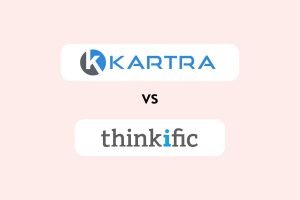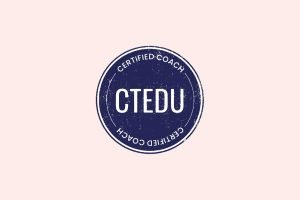Last updated on November 26, 2023
In the vibrant world of coaching, your impact isn’t just determined by your skills or your passion, but also by the framework in which you offer your gifts.
What is that framework?
Your business model.
For many coaches, especially those just embarking on this transformative journey, the plethora of business models available can seem overwhelming.
Should you offer intimate one-on-one sessions, or does the allure of digital courses call to you? Maybe the thought of hosting empowering retreats sparks excitement in your heart.
Navigating this maze of choices is more than just a strategic decision; it’s about aligning your deepest passions, strengths, and the unique needs of those you wish to serve.
In this article, we’ll illuminate the path, helping you understand, evaluate, and choose the business model that resonates with your vision and amplifies your impact.
Ready to choose the business model that’s best for you? ✨
Table of Contents
Understanding Business Models
At its core, a coaching business model is the blueprint of how you serve your clients and generate revenue. It’s the vessel that carries your expertise, insights, and transformative power to the world.
But why is it so pivotal in the coaching realm? 🌟
In an industry as diverse and dynamic as coaching, the way you offer your services can make all the difference. Your chosen model can amplify your reach, streamline your operations, and even enhance the transformations you facilitate.
Moreover, the right business model ensures sustainability. It aligns your revenue streams with your energy outflows, ensuring that you can continue to serve and impact lives without burning out or feeling spread too thin.
But remember, while strategy is vital, so is authenticity. Your business model should be a harmonious blend of market demand, operational feasibility, and, most importantly, your own personal preference and vision.
The Various Coaching Business Models
Before diving into the deep end, let’s get a bird’s-eye view of the most popular and effective coaching business models. Each has its strengths, challenges, and unique flavor. As we explore each, envision how they align with your strengths, your target audience’s needs, and your long-term vision.
1. One-on-One Coaching Sessions 🤝✨
The classic model, where the magic of personal transformation unfolds in intimate sessions. It’s deep, direct, and tailored to individual needs.
Pros:
- Direct impact, allowing for tailored strategies and deep transformations.
- Higher pricing due to the personalized attention.
- Immediate feedback, aiding in rapid iterations and improvements.
Cons:
- Time-intensive; the coach’s earning potential is tied to their available hours.
- Requires consistent lead generation to maintain a full client roster.
→ Best for: Coaches who thrive on deep personal connections and want to dive deep with each client.
2. Group Coaching and Workshops 👥🌟
Harnessing the power of community, group sessions offer transformative insights in a collective setting, often leading to shared learning and mutual growth.

Pros:
- Serves multiple clients simultaneously, leveraging time better.
- Fosters a community, often leading to peer learning and support.
- Economically accessible for clients compared to one-on-one sessions.
Cons:
- Requires skills to manage group dynamics and ensure individual attention.
- Outcomes might vary within the group; not as tailored as individual sessions.
→ Best for: Coaches who enjoy fostering community growth and can manage group dynamics effectively.
Editor’s Note: If the logistics of offering group coaching pose difficulties, check out our software recommendations for easy scheduling and billing of your group sessions.
3. Digital Courses and Webinars 💻🚀
Harnessing the power of technology, these offer scalable coaching solutions that can impact thousands without the coach’s real-time presence.
Pros:
- Highly scalable, with potential for passive income.
- Flexible for clients; they can access the material on their own schedule.
- Can be coupled with other models for enhanced value.
Cons:
- Initial time and investment in creating high-quality content.
- Lacks the personal touch of live sessions.
→ Best for: Coaches with a knack for creating engaging digital content and those looking to expand their reach globally.
Editor’s Note: Looking for comprehensive and intuitive course-building software? Check out our top picks.
4. Retreats and Intensive Workshops 🌄📚
Often spanning days, these immersive experiences offer deep dives into transformative content in inspiring settings.
Pros:
- Creates profound transformations due to its immersive nature.
- Higher pricing due to the comprehensive experience.
- Opportunities for networking and creating a loyal community.
Cons:
- Logistical challenges and higher upfront costs.
- Intermittent; might not provide consistent monthly revenue.
→ Best for: Coaches passionate about creating transformative experiences and those skilled in event planning or willing to collaborate with experts.
5. Product Sales 📚💽
From authored books to proprietary coaching tools, selling products can diversify a coach’s revenue stream and extend their brand’s reach.
Pros:
- Another avenue for passive income.
- Extends brand visibility and authority in the coaching niche.
- Can serve as supplementary material for other coaching formats.
Cons:
- Initial time investment in product creation.
- Managing inventory and distribution logistics, especially for physical products.
- Ensuring consistent product quality and relevance.
→ Best for: Coaches who can encapsulate their knowledge in tangible formats and are keen to diversify their offerings.
6. Affiliates & Partnerships 🤝🌐
In the interconnected digital world, collaborations offer vast potential. From endorsing tools to partnering with complementary service providers, affiliations can amplify reach and revenue.

Pros:
- Opens new avenues for revenue without creating fresh content.
- Enhances brand credibility when partnering with respected entities.
- Expands the audience reach through shared visibility.
Cons:
- Ensuring brand alignment; partnerships must resonate with the coach’s values.
- Maintaining transparency and trust, especially when endorsing products.
- Navigating revenue-sharing and collaboration terms can be intricate.
→ Best for: Coaches looking to expand their offerings without extensive content creation, and those keen to collaborate with aligned brands or peers.
Choosing the Right Model for You
Every coach is unique, and so is their audience. The ideal business model isn’t a one-size-fits-all solution but a tailored approach that considers multiple facets.
Factors to consider:
- Strengths and Passion: Reflect on what energizes you. If you love intimate, deep conversations, one-on-one coaching might be your forte. If you’re invigorated by group dynamics, workshops or group coaching could be your calling.
The right business model ensures sustainability. It aligns your revenue streams with your energy outflows, ensuring that you can continue to serve and impact lives without burning out or feeling spread too thin.
- Target Audience Needs: Understand the preferred learning and engagement methods of your audience. Some might thrive in community settings, while others might seek personal attention.
- Scalability: How do you envision your coaching practice growth? If you’re aiming for a global footprint, online courses and digital platforms could be key.
- Time Commitment: Some models require consistent, ongoing time (like one-on-one coaching), while others involve upfront effort with potential for passive income later (like online courses).
Remember, it’s essential to stay adaptable. As the coaching industry evolves, so should your approach. Feedback, industry trends, and personal growth will all play roles in refining your chosen business model(s).
Blending Business Models for Greater Impact
Why limit yourself to one avenue? The dynamic nature of today’s coaching realm allows for a blend of models, maximizing reach, impact, and revenue.
Case Study – Gabby Bernstein
Gabby Bernstein began her coaching journey offering one-on-one sessions. As her clientele grew, she started doing group sessions, and as her audience grew even more, she encapsulated her methodology into online courses and big live events. In parallel, she authored multiple books and has hosted retreats and masterclasses on niche topics. By blending models, Gabby expanded her impact by tapping into her diverse skill set and strengths, thus reaching a global audience while diversifying her revenue streams.
Key Takeaways
- Start with your core strength and gradually expand.
- Ensure each model aligns with your brand ethos and complements the others.
- Regularly evaluate and refine your approach based on feedback and results.
Conclusion: Your Business Model, Your Beacon
Choosing a business model isn’t just a strategic decision; it’s a reflection of your coaching identity. It defines how you interact with your audience, the transformations you facilitate, and the legacy you wish to leave behind.
Take a moment to introspect 🍃.
Which model or blend of models resonates with you? Is it time to refine your current approach or perhaps explore a new avenue?
In the ever-evolving coaching cosmos, let your chosen business model be your beacon, guiding you to serve, impact, and flourish. And with this newfound clarity, passion, and strategy, witness your coaching practice ascend to unparalleled pinnacles of success. 🚀
Further Reading and Resources
Embarking on the journey of determining your coaching business model can be both exhilarating and challenging. To assist you, here’s a curated list of resources that delve deeper into the topic, offering insights, strategies, and success stories.
Julie Vander Meulen’s Resources:
- Own Your Life Academy: Discover articles, resources, and one-on-one coaching focused on optimizing your coaching business model and serving your clients more effectively while staying in deep alignment with your true self and your greatest strengths and desires.
In-Depth Resources on Different Coaching Business Models:
- The Prosperous Coach by Rich Litvin & Steve Chandler: Dive deep into the world of one-on-one coaching and understand how to create a lucrative practice without needing a massive audience.
- Stu McLaren’s Online Platform: Delve into the world of membership sites and recurring revenue, with strategies to build and nurture a thriving community.
- Expert Secrets by Russell Brunson: Understand the nuances of online courses, webinars, and digital platforms to maximize your reach and impact.
- Launch by Jeff Walker: A step-by-step guide to launching online courses, products, or events effectively and profitably.
Remember, while these resources offer insights and guidance, the most authentic business model aligns with your passion, purpose, and clientele. Embrace continuous learning, stay updated with the evolving coaching landscape, and ensure your chosen model resonates with your unique coaching vision and ethos. 🌟

Julie Vander Meulen
Julie Vander Meulen, founder of Own Your Life, is a trailblazer in personal development, career coaching, and digital branding for ambitious women. With a blend of entrepreneurial flair and heartfelt authenticity, she empowers women to harness their narratives, ensuring they shine in the digital age.
















Be First to Comment